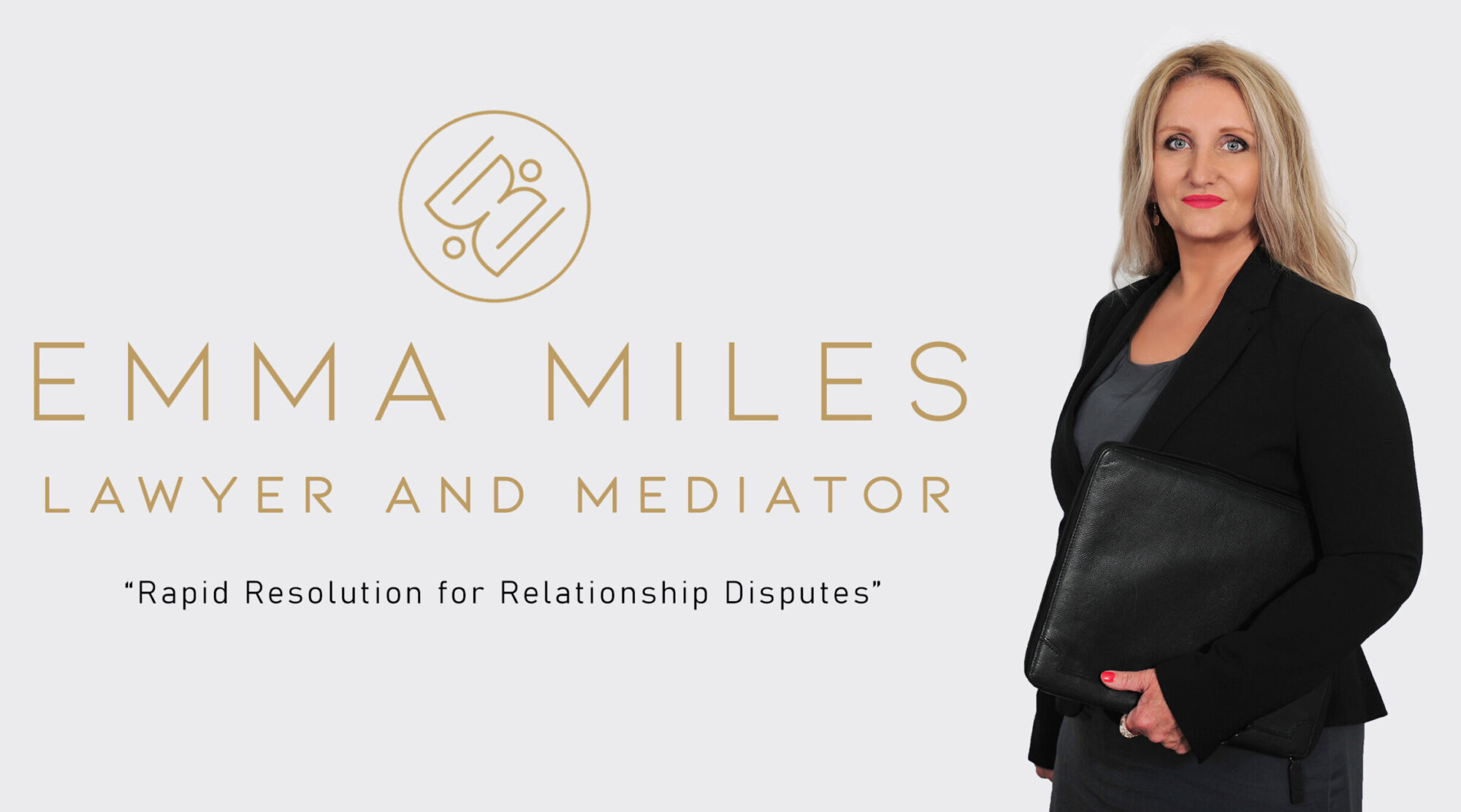What is Dispute Resolution?
Disputes are not necessarily like other areas of law, where you know what you need to achieve at the outset and there is a set formula to reach the desired result. The result largely depends on the issue in dispute and the other parties’ response – and both of these can vary significantly during the resolution process.
Initially Emma will use one of the following Collaborative Processes for resolving disputes:
![]() Negotiation: a method by which differences are settled through reasoned discussion, identification of any legal issues, while avoiding argument and dispute.
Negotiation: a method by which differences are settled through reasoned discussion, identification of any legal issues, while avoiding argument and dispute.
![]() Facilitation: a neutral third person assists the parties to identify the issues to be solved and tasks to be accomplished. Facilitation may be successful at this point, or it may proceed like mediation, with the parties attempting to reach agreement.
Facilitation: a neutral third person assists the parties to identify the issues to be solved and tasks to be accomplished. Facilitation may be successful at this point, or it may proceed like mediation, with the parties attempting to reach agreement.
![]() Mediation: An impartial person facilitates communication between parties to promote reconciliation, agreement, or understanding among them. The parties have ultimate control of any decision to settle a dispute or difference and the terms of resolution. A fully confidential process.
Mediation: An impartial person facilitates communication between parties to promote reconciliation, agreement, or understanding among them. The parties have ultimate control of any decision to settle a dispute or difference and the terms of resolution. A fully confidential process.
![]() Conciliation: Similar to mediation although the conciliator is more like an interventionist who provides potential solutions for resolving the dispute.
Conciliation: Similar to mediation although the conciliator is more like an interventionist who provides potential solutions for resolving the dispute.
![]() Judicial Settlement Conferences: A type of mediation held in Court presided over by a Judge for the purpose of negotiating a settlement of the proceeding or any issue in the proceeding.
Judicial Settlement Conferences: A type of mediation held in Court presided over by a Judge for the purpose of negotiating a settlement of the proceeding or any issue in the proceeding.
![]() Other: another process in which the parties attempt to reach agreement.
Other: another process in which the parties attempt to reach agreement.
Emma’s focus will be on achieving the most favourable outcome for you, where possible using negotiation, mediation, or another non-litigious method for resolution. Occasionally these methods are not effective and it is necessary to take a litigious route.
What is Litigation?
At times it is not possible to resolve disputes and litigation may be required. Litigation is the act of bringing a lawsuit in court to resolve any disputes.
Should your matter need litigation, Emma will give you realistic and sound advice on using Litigious Processes such as:
![]() Arbitration: a private decision-making process. The parties agree to arbitrate and agree on evidence and procedure. The arbitrator decides the dispute based on legal rights and entitlements. The decision is final and binding and can only be revisited by the Courts in very limited circumstances.
Arbitration: a private decision-making process. The parties agree to arbitrate and agree on evidence and procedure. The arbitrator decides the dispute based on legal rights and entitlements. The decision is final and binding and can only be revisited by the Courts in very limited circumstances.
![]() Court: Both parties file their positions in their “pleadings”. This will progress to include any evidence they are seeking to rely on. The Court makes a decision about the outcome of the dispute which is final and binding (although it can be appealed to a higher Court within a limited time frame).
Court: Both parties file their positions in their “pleadings”. This will progress to include any evidence they are seeking to rely on. The Court makes a decision about the outcome of the dispute which is final and binding (although it can be appealed to a higher Court within a limited time frame).
If you would like to discuss your situation then call us today for a no obligation consultation about how we can help.
